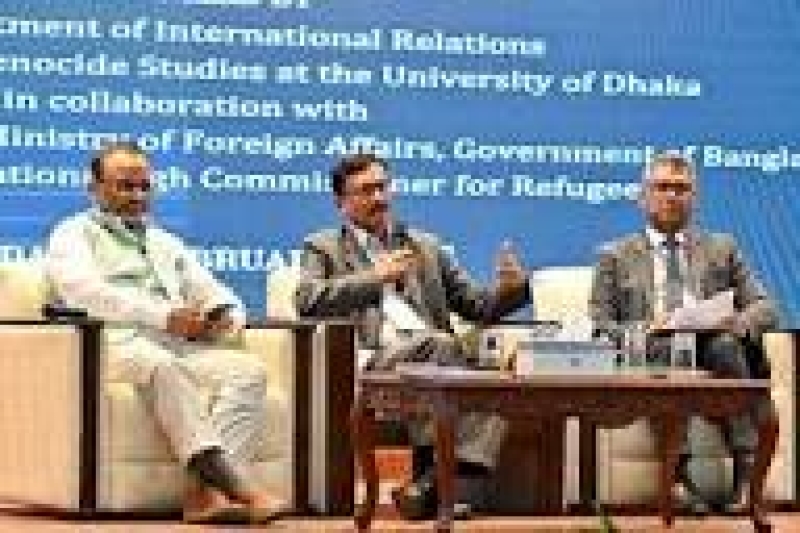- Bangladeshi Expats Cast 4.58 Lakh Postal Votes |
- IMF Forecasts Bangladesh GDP to Rebound to 4.7% in FY26 |
- Arab Allies Urge Restraint as Trump Presses Iran Talks |
- EC asks printing presses not to print election posters |
- Protect your votes, conspiracies still on: Tarique to voters |
Foreign Fund Cuts Could Worsen Rohingya Crisis, Warns Adviser

Foreign Affairs Adviser Md Touhid Hossain has urged the international community to continue supporting the Rohingya population, warning that cuts in foreign aid could exacerbate the already dire humanitarian crisis.
During the closing session of an international seminar at the Foreign Service Academy (FSA) on Monday, Hossain expressed concerns over the increasing financial burden on Bangladesh’s government due to potential declines in foreign funding. “I'm afraid it might be,” he said, referring to the impact of further reductions in international aid.
The seminar, titled “The Rohingyas in Bangladesh: In Search of a Sustainable Future,” was organized by the University of Dhaka’s Department of International Relations, the Centre for Genocide Studies, the Foreign Service Academy, and the UN High Commissioner for Refugees.
The UN reports that for 2024, $852.4 million is required for the Rohingya response, but only $548.9 million has been pledged so far, with the US contributing $301 million (55% of total donations).
Hossain highlighted the global nature of the crisis, stating, “Many think that the Rohingya living here is Bangladesh’s problem. It is not. It is a global problem. If the Rohingya are desperate, it will be a challenge not only for Bangladesh but for the entire region.”
Since the mass influx of Rohingya refugees in 2017, Bangladesh has faced immense challenges in managing the crisis. The situation worsened last year as 80,000 additional Rohingya entered Bangladesh, fleeing intensified conflict between the Myanmar military and the Arakan Army in Rakhine State. This surge has further strained the overcrowded refugee camps in Cox’s Bazar.
Adviser Hossain also stressed that Myanmar's ongoing civil war and its shifting political landscape must make the Rohingya issue a priority in future negotiations. He emphasized the importance of restoring the Rohingya's citizenship and basic rights, asserting that repatriation remains the only sustainable solution.
Former Ambassador M Humayun Kabir noted that both Myanmar and Bangladesh are evolving, with younger generations reassessing the situation. “We will find new options to engage with multiple forces not only within Myanmar but beyond,” he said.
Dhaka University’s Prof. Delwar Hossain underscored that sustainable repatriation hinges on granting Rohingyas citizenship and fundamental rights, while Prof. Niloy Ranjan Biswas pointed out that conflicting geopolitical interests have complicated the situation.
Hossain urged Bangladesh to adopt a strategic diplomatic approach to resolve the crisis. Key figures at the seminar included Chief Adviser’s High Representative on the Rohingya Problem Dr. Khalilur Rahman, Foreign Secretary Md. Jashim Uddin, and various professors from Dhaka University and Jahangirnagar University.

